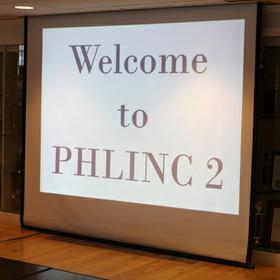Registration for PHLINC 2: Language and Other Minds is open!
PHLING, a research consortium made up of students and faculty from the departments of linguistics and philosophy at the University of Maryland, is hosting its second biennial PHLINC symposium on February 14-15, 2014. PHLINC is a biennial conference on topics at the intersection of linguistics, philosophy, and neighboring disciplines, organized by PHLING, a research group of students and faculty from the departments of linguistics and philosophy at the University of Maryland. The topic of PHLINC2: Language and Other Minds is attitudes and attitude ascriptions, with a special emphasis on knowledge ascriptions and related phenomena such as presupposition, factivity, and evidentiality. The conference will feature eight 30 minute presentations by graduate students, plus invited talks by Mandy Simons (Carnegie Mellon University) and Jason Stanley (Yale University), as well as a special discussion session on acquisition issues in this area, led by Shevaun Lewis (Johns Hopkins University). The use of language relates to an awareness of other minds in two important ways. First, communication depends fundamentally on a sensitivity to the intentions and beliefs of others in conversation. Presupposition and implicature are interesting special cases of this. Second, with verbs like “think” and “know”, we can talk about mental states explicitly, in ways that create familiar semantic challenges. Acquiring a language therefore involves the development of competence in both areas, not a simple task. At PHLINC2 we invite discussion of both sorts of relations between language and other minds, from the perspectives of philosophy, linguistics and cognitive or developmental psychology. What understanding of knowledge, belief, desire and intention is expressed in the meanings of attitude verbs? In what ways does the use of such verbs rely on pragmatic enrichment? What is the correct understanding of knowledge in conversation, as expressed in presuppositions, evidentials, or epistemic modals? By what path do children become competent in these various areas? And what does this tell us about the linguistic representation of mental states, or semantic theories of attitude verbs?
The conference will take place Friday, February 14th and Saturday, February 15th in Marie Mount Hall. To REGISTER please follow at this link by Wednesday, February 12, 2014.
Contact: Rachel Dudley
Contact Email: rachel.elaine.dudley@gmail.com
Meeting URL: http://phling.umd.edu








